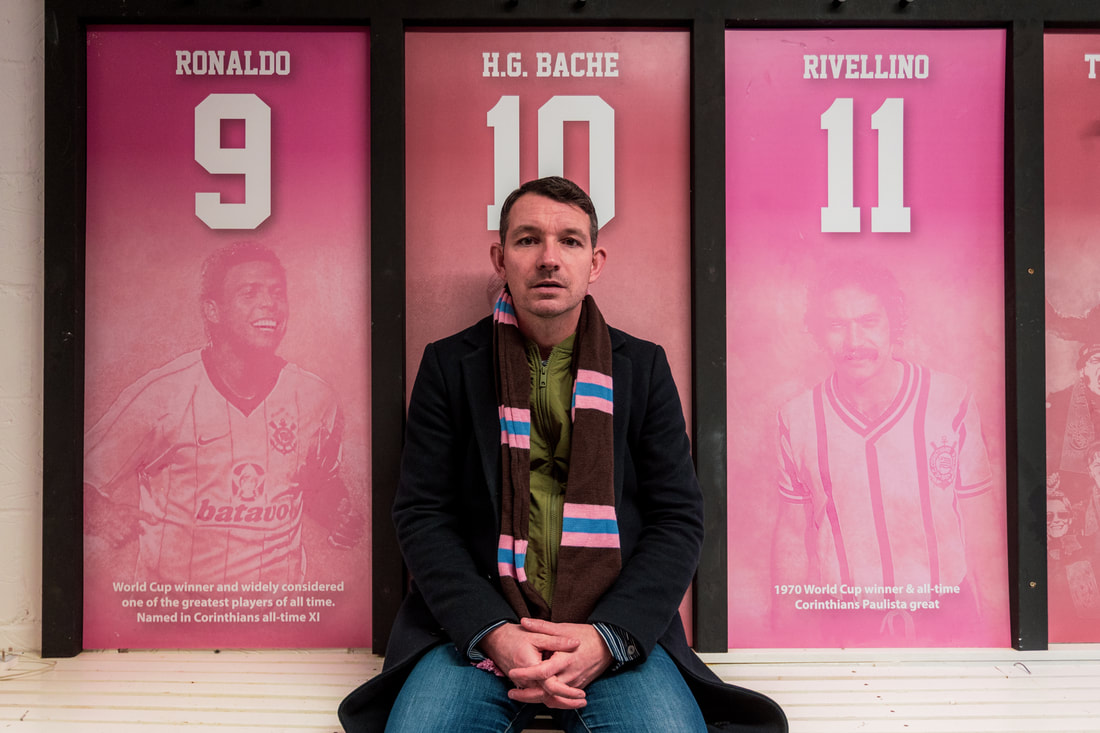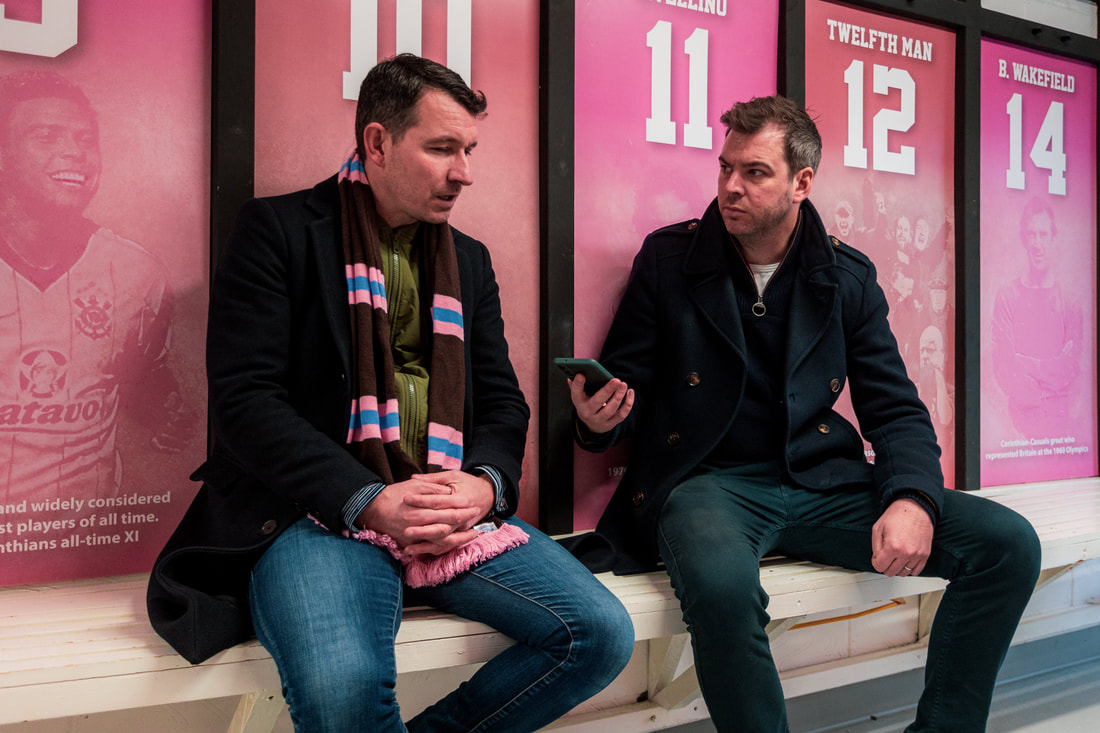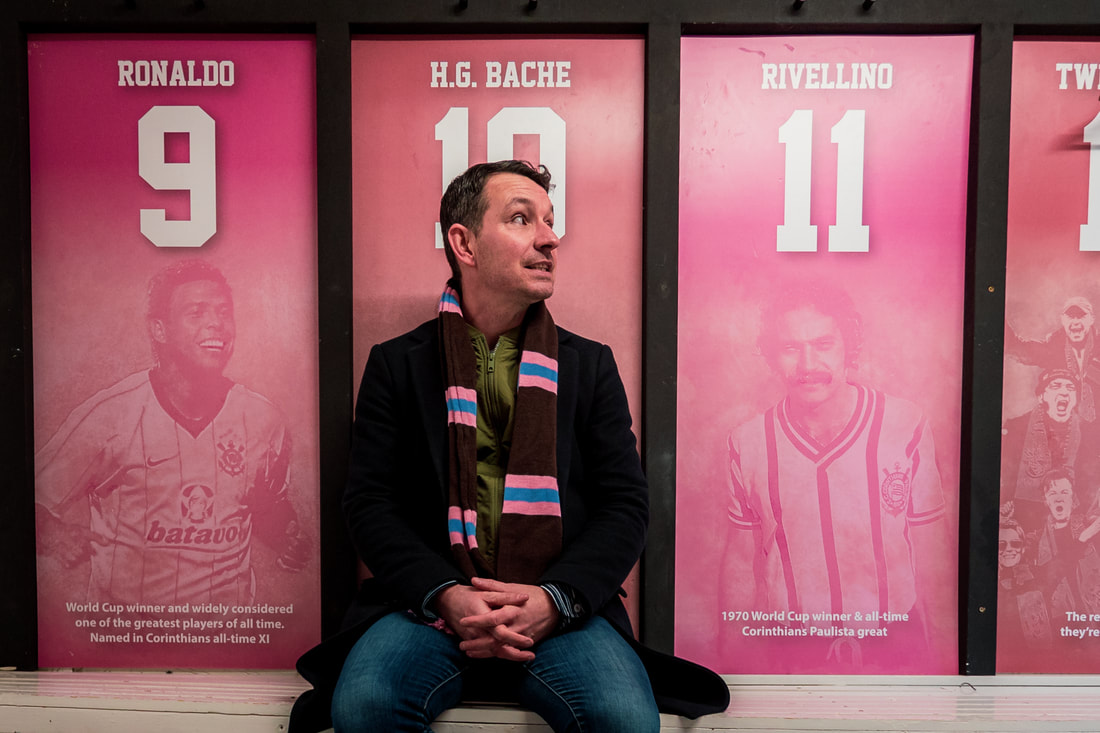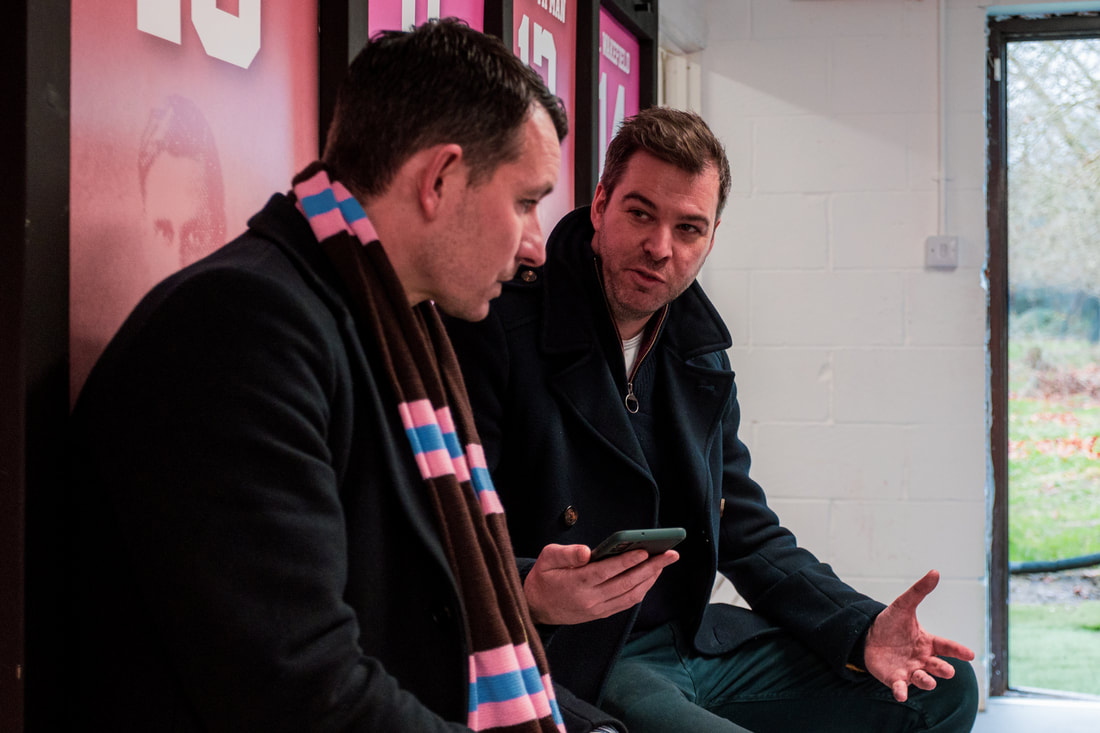Welcome to the club, Paul. What inspired you to take this role?
First of all, it was the history, the tradition and what the club means to people, but also the platform it can provide players. I think football has got a little bit lost in non-league – everything is now tainted by money and there is too much going on where people sell false promises and dreams. This is a club that offers that sense of realism to players about what it can offer in their journey, or it might just be a place where they can come and enjoy their football.
It is still the beautiful game, even though a lot of people question that – and I’ve questioned it myself a few times. It’s great timing too, with the club being in a bit of a transition, with a new chairman and committee, and we’re really excited to be working together.
You’ve alluded to the club’s identity there. How aware are you of the unique aspects of Corinthian-Casuals?
I’ve always admired this club from afar, and always respected it. I have a really good relationship with the previous manager, James Bracken, and also with Justin Fevrier, who was here last season and can only speak highly of the club.
So I’m really excited to get going, I’ve had lots of messages already from people, some of whom started their careers here 20-odd years ago, and I’ve heard what this club has done for people on their journey in the game. A lot of players reached out in the first 24 hours of me being appointed and asked if there was any chance of coming back, which is a great sign.
We are in a fight against relegation as you take on the role. How prepared are you for that?
Something we never shy away from, and which we’re proud of, is where we’re from. I’m a local lad, and I grew up in south-west London, not too far from here. I have family just down the road and I grew up in a working-class environment, so I know that everything you’re ever going to get has to be earned, it has to be worked for.
That’ll be the message. It doesn’t matter if you’re going into a club that’s hovering around mid-table or fighting for their lives at the bottom, that work ethic is still the thing that is going to get you out of trouble.
We’re willing to put the work in, both me and Justin. We will give everything we’ve got to start picking up points and make sure that we stay in this division.
You go through your life in football and you pick up a lot of acquaintances, and you will know a million and one people in the game that will say they’re a pal, but Justin is someone I can trust. I think it’s important to have somebody that you trust away from the football as well, and we had an experience together at Hastings United earlier this season, which was one of those awkward situations where things didn’t work out because of internal changes at the club.
But as soon as we discussed this role, and I had the opportunity to work with Justin again, I took it. I know his strengths, I know what he can bring to the table, I respect all of his qualities and I trust him. That is invaluable and I’m looking forward to working together for a long period of time, making sure we keep this club where it should be, and even pushing on in the future.
How would you summarise your approach to coaching and management?
It’s very much about man management and player development. My background is coaching, but I enjoy building relationships, I like being personable with players, I want to know what they’ve got going on in their lives, because as much as we talk about football like it’s the be-all and end-all for everybody, it’s not. Everybody has lives away from football and being at an amateur club, which offers a platform to try and push on and make a career in the game, or better themselves, it’s important to get to know the players as people.
I enjoy that side of it, but I also enjoy being on the coaching field as well. I’m not a manager that will stand back, I want to be in the mix, delivering messages and helping players improve.
Ultimately, our job as a management team is to make sure players are performing, so when they go out there on Saturday it is our job to make sure they have got as much information and are as equipped as they can be to go out there and get three points.
I just came in and have been walking around for the last few minutes having a little look and a read about these players on the wall. It’s unbelievable. I just laughed because I didn’t even see this before I accepted the job, and had I seen it, I probably would have run in the door! I think it’s brilliant.
I’ve never been fortunate enough to go in the home dressing room when I’ve come here in the past – I wouldn’t have been allowed by the previous managers! But what a great environment for everybody. This is inspiring in itself. This [gestures at the images of past greats around us] is something that other clubs can’t provide, they can’t compete with that, and I’m talking about clubs further up the pyramid too.
I’m delighted to be here and loving getting to know the place and the people around it. This place is filled with good people.
One of the frames in the dressing room is reserved for our supporters, the Twelfth Man, and they very much are that here. How important are the fans going to be in the weeks and months ahead?
I said it when I was appointed: anything earned will be done together, and I’m not just talking about the people on the pitch. The fans and all the people off the pitch here are giving us all their support and that is going to be crucial.
In modern times, we talk about the cost of living crisis a lot, and people are spending their hard-earned money to come and support us. We have to make sure the players know that and recognise how important it is to have that connection with the crowd.
More than that, we have to realise that we can actually connect with people on a more personal level, so it’s our job to do that, and make sure the players understand that message, because that will be the ethos.
INTERVIEW BY DOMINIC BLISS






